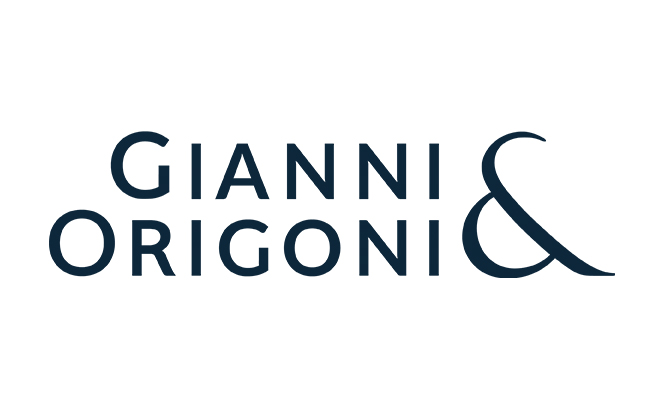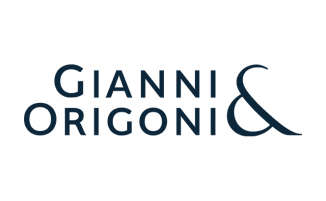In recent years, ESG (environmental, social, and governance) factors have been subject to a growing and constant evolution within the European Union and its member states, which has led sustainability to assume an increasingly important role in the economic and social context. Sustainability has become a competitive, strategic and organisational tool for creating added value, with the ambition of being able to measure organisations’ sustainability performance based on predetermined KPIs (ie standard GRI and ESRS).
This benefits the organisation itself, its stakeholders and citizens globally.
The ESGs have become of primary importance following the enactment of the UN’s 2030 Agenda for Sustainable Development signed in September 2015 by the governments of 193 states, which incorporates 17 Sustainable Development Goals – SDGs – into a grand action programme of 169 targets.
With specific reference to social, the targets are zero poverty, eradicating hunger, securing health and well-being, quality education, gender equality, decent work, economic growth and reducing inequality. In addition, reference should be made to the European Green Deal – the instrument through which Europe has committed itself to the goal of climate neutrality by 2050 – the European Pillar of Social Rights and its action plan; the European Social Charter; the EU Charter of Fundamental Rights; the European Convention on Human Rights; the UN Guiding Principles on Business and Human Rights (UNGPs); and the ILO conventions.
In terms of the ‘S’ factor and its impact on labour law consultancy, we have seen an increasing client sensitivity in this area, often affecting their business plans, governance models and set priorities. Indeed, the ‘S’ factor is now strategic, since organisations are required to identify, prevent, mitigate and eliminate (to the extent possible) negative impacts, whether potential or actual, on – inter alia – human rights, decent work, equality, anti-discrimination and to provide their workers (along with the workers in the value chains) with grievance mechanisms.
These macro-objectives can be broken down into sub-objectives that not only change the organisations’ approach to the topic, but also change the relationship between them and their employees. Among the various sub-objectives to be pursued, the following merit special mention:
- equal opportunities (gender equality and equal opportunities);
- fair working conditions (flexible and secure employment, wages, information on working conditions and protection in case of dismissal, social dialogue and employee involvement, work-life balance, healthy, safe and adequate working environment and data protection);
- social protection and inclusion (minimum income, retirement income and pension, health care, inclusion of persons with disabilities, access to essential services and products).
In the above framework, the European Union has started to implement legislation on social sustainability covering subjects that previously were either left to member states or ruled by soft law or international conventions. Among the many, we consider to be relevant for the ‘future’ employment lawyers – on top of the CSRD and the proposal of the CS3D (see below) – (i) the Whistleblowing Directive No. 2019/1937, (ii) the Gender Pay Gap Directive No. 2023/970 and (iii) the proposed Directive No. 85/2023 on greenwashing.
(i) The purpose of the Whistleblowing Directive No. 2019/1937 is to ensure adequate protection to persons working in the public or private sector, who decide to report wrongdoings they have become aware of in the context of their employment or commercial relationship. In other words, whistleblowing represents a powerful tool for stakeholders’ engagement. The directive in question envisages strengthening the protection of whistleblowers by means of effective, confidential and secure reporting channels that, above all, can guarantee protection of whistleblowers from retaliation. The directive therefore extends protection to the largest possible number of categories of persons who, as citizens of the Union or of third countries, by virtue of their professional activities or otherwise, have privileged access to relevant information and are exposed to the risk of retaliation. The directive provides that not only employees but also consultants, suppliers, subcontractors, stagers, volunteers and shareholders have the power to report. The objective of the directive is that the information is dealt with effectively by those who are in a position to resolve the issue raised by the whistleblower. The directive requires organisations with at least 50 employees to set up reporting channels and provides for effective, proportionate and dissuasive civil, administrative and criminal sanctions against those who obstruct or attempt to obstruct reporting. In Italy, the directive was transposed into domestic law by Legislative Decree No. 24 of 10 March 2023 and its provisions will become binding by year end (15 July – 17 December 2023, depending on the number of employees).
(ii) The EU directive 2023/970 sets out arrangements to strengthen the application of the principle of equal pay for equal work or work of equal value between men and women: through pay transparency and strengthening the related enforcement mechanisms. Member states must adopt legislation transposing the directive to bind employers to adopt gender-neutral job evaluation and classification systems that exclude any direct and/or indirect pay discrimination based on sex. The ‘pay’ referred to is both basic pay and pay with variable components. The directive also regulates how to determine whether a job is the same or of equal value through criteria based on eg skills, working conditions and responsibilities, as well as any other factors that may be deemed appropriate for more specific positions. In general terms, employers will not be obliged to pay employees equally for the same job or a job of equal value, but they will have to be able to prove that there is no gender bias and that any differences is due to objective and neutral criteria. Companies employing more than 100 employees will have a reporting obligation at set intervals ranging from one to three years depending on the size of the company. Employers who register a gender pay gap of at least 5% in any category of employees, who cannot justify the gap with objective and gender-neutral factors and who do not address the pay gap within six months, will have to ‘remedy the situation’, in cooperation with employees’ representatives, the labour inspectorate and/or equality bodies. Furthermore, the directive introduces the employees’ and work councils’ rights to request transparent information on salaries. For employees who suffer prejudice, the directive provides the right to obtain remedies from the competent authorities or national courts to cease the violation, and the application of measures to guarantee the right to equal pay and compensation by way of damages (including moral damages and damages for loss of chance). In Italy, the directive and its future transposition into law are part of a path already started by the Italian legislator on the ESG social factor: a first step is certainly law no. 162/2021, introducing the procedure to obtain certification on gender equality with the purpose of reducing the gap between men and women in the world of work. Certification is to be considered an increasingly strategic technical tool that is raising awareness among companies on these issues. In addition, obtaining such certification brings significant reduction in social security charges.
(iii) On the subject of greenwashing, a proposal for a directive was presented on 23 March 2023 that will strengthen consumer rights by amending two directives: Directive 2011/83/EU on consumer rights and Directive 2005/29/EC on unfair commercial practices. The proposal also refers to social factors, since organisations will have to provide, on top of climate change data, information on social sustainability practices, such as applied working conditions, in order to avoid the misleading of consumers.
The legal framework illustrated above, together with the multitude of measures the legislator is taking, will support organisations wishing to score high when it comes to sustainability reporting, including on the social factor. This obligation stems from the Corporate Suistainability Reporting Directive (CSRD) that member states must enact by July 2024. The reporting obligation will place greater responsibility on organisations: they will be obliged to regularly publish and certify their data. The CSRD, already in force, should be completed by the Corporate Sustainability Due Diligence Directive (CS3D) which, although not yet enacted and still under consideration by the European institutions, will require organisations to integrate ESG due diligence procedures in their corporate governance and management systems, in order to identify, prevent and eliminate negative impacts on human rights and social factors in their operations. In the wake of the CS3D strategy is the regulation on the European social taxonomy aimed at identifying common paradigms at European level useful for classifying economic activities as sustainable, also from a social point of view. The approach of the social taxonomy follows that of the environmental taxonomy. However, while the basis of the green taxonomy is scientific, the final report on social taxonomy proposed to ‘measure’ social impact by basing the classification on a mix of international standards, principles and objectives. The sustainability policies that the European Union is adopting as well as the reporting and due diligence obligations are not to be taken in isolation, but they are to be understood as complementary to each other, on a path of change in which organisations are increasingly called to raise awareness on the subject, in order to achieve an assessment of the social impact of their activities.
Introducing and reinforcing social best practices, like those on ‘environment’ and ‘governance’, is not only a necessity, but an opportunity to remain competitive, attractive and capable of creating value, for the organisation itself and for the world around it.
At the same time, as employment lawyers, this is a fantastic opportunity to develop and demonstrate their competence and support clients in this epochal challenge.
The team
Our lawyers have specific and wide-ranging experience in all the different areas of Italian labour and social security law, including industrial relations. They also have hands-on experience as litigators, having been involved in some of the most complex court cases in Italy in recent years.
The labour law team is led by Alessandra Ferroni and Saverio Schiavone.
Key partner of our firm’s ESG focus team, Alessandra specialises in labour law and industrial relations, in complex company restructuring and reorganisation, in the outsourcing process, top management remuneration packages and in litigation.
Saverio, a former judge, specialises in restructuring processes, human resources management, trade union law, litigation and employment contracts.
Raffaella Betti Berutto focuses her practice on business transfers, restructuring and reorganisation processes, lay-offs, compensation and benefits, employment agreements for expatriates, managers and HR management, with specialist knowledge of the aviation industry.
Cristina Capitanio assists Italian and foreign clients in both contentious and non-contentious matters and in all aspects of labour and employment law.
Matteo Fusillo specialises in employment law and industrial relations and has done so since the beginning of his career.
Emanuele Panattoni supports domestic and international clients in litigation and advisory matters related to any aspects of employment law.
The team is completed by 18 professionals, including three counsel: Stefano Biagioli, who deals with both contentious and pre-contentious labour law matters, with expertise in health and safety issues and a strong track record in representing top-level managers; Luisa Michilli, a specialist in the management of employment issues concerning the air industry sector; and Cristiana Pomes, expert in the sector of the staff leasing of personnel.
Having a long tradition of representing foreign multi-national groups in Italy, our specialists have built up a genuinely multi-cultural approach to their practice, enabling them to provide clear, comprehensive advice in cross-border contexts.
For more information contact

Alessandra Ferroni
Partner | co-head of the labour law department
E: aferroni@gop.it

Savierio Schiavone
Partner | co-head of the labour law department
E: sschiavone@gop.it

Raffaella Betti Berutto
Partner
E: rbetti@gop.it

Cristina Capitanio
Partner
E: ccapitanio@gop.it

Matteo Fusillo
Partner
E: mfusillo@gop.it

Emanuele Panattoni
Partner
E: epanattoni@gop.it

Stefano Biagioli
Counsel
E: sbiagioli@gop.it

Luisa Michilli
Counsel
E: lmichilli@gop.it

Cristiana Pomes
Counsel
E: cpomes@gop.it














